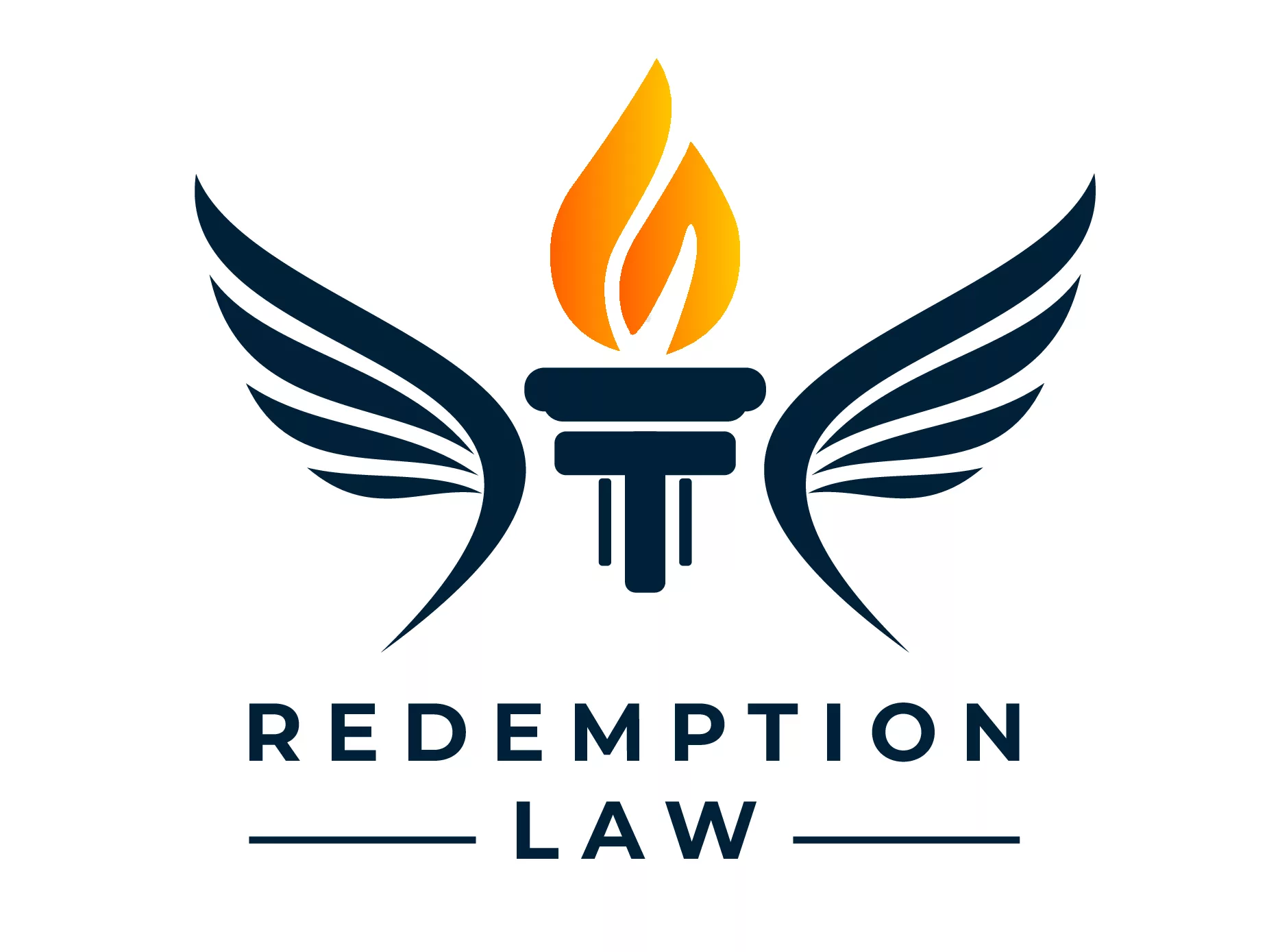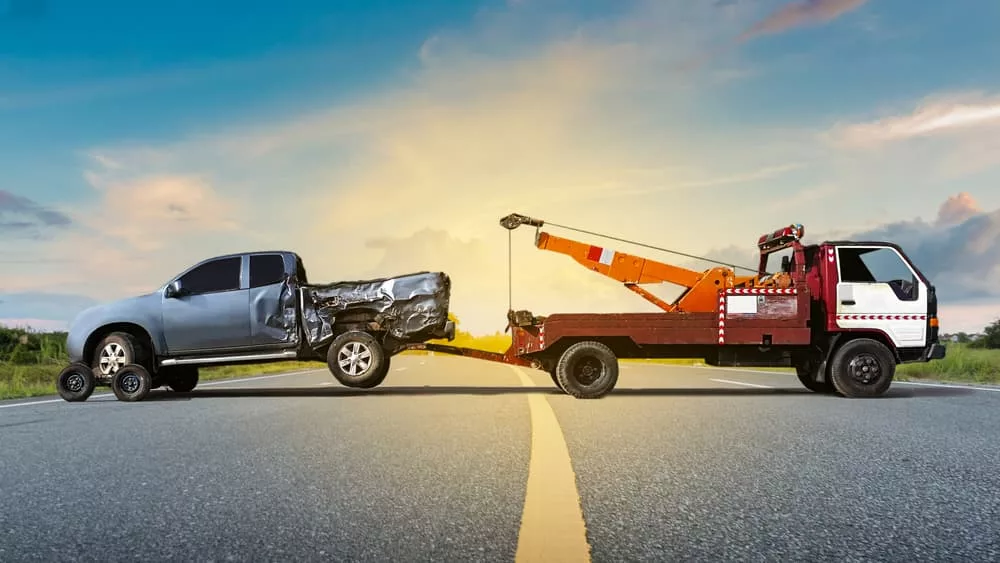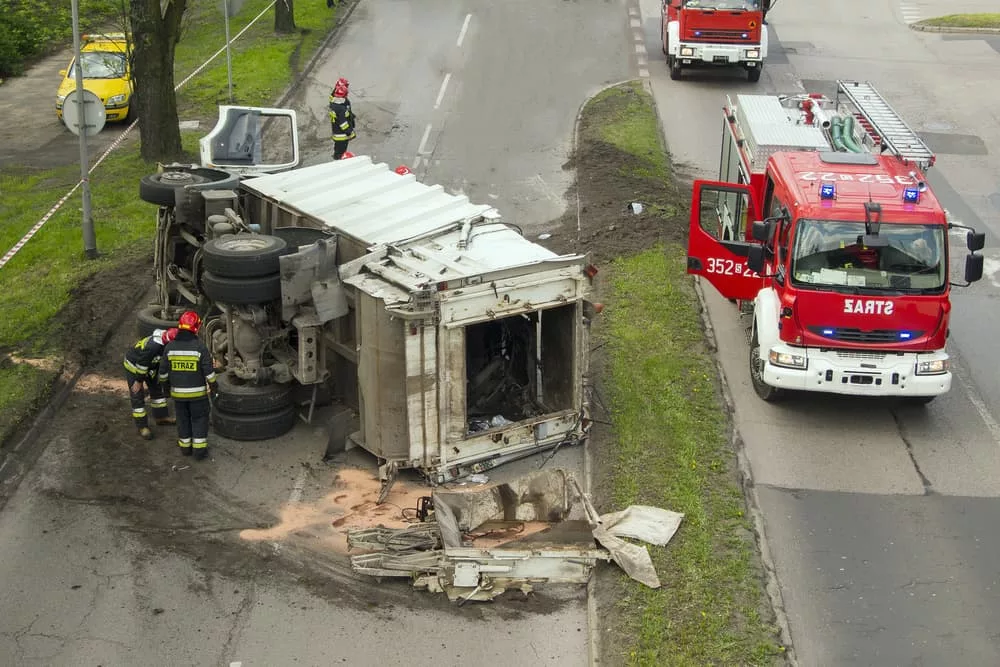Victims of a truck accident often face severe injuries, emotional distress, and mounting medical expenses.
You must determine liability in truck accidents to recover damages. It is easy to assume the driver is solely responsible, but you can also hold the trucking company and other parties accountable.
This article explores the various situations when you can hold the trucking company legally responsible for an accident and your resulting injuries. We will also explain how an experienced truck accident lawyer can help you navigate the complex process of identifying the responsible parties and holding them accountable.
Negligent Hiring and Retention
Negligent hiring and retention occur when a company employs and retains an individual despite evidence they pose a risk of harm to others. You can hold a trucking company liable if it negligently hired or retained a driver with a record of unsafe driving behaviors, substance abuse, or other red flags that background checks would have revealed.

Trucking companies have a responsibility to thoroughly vet potential drivers before hiring them. This typically involves verifying driving records, conducting background checks, and checking references.
Examples of red flags in a driver’s history include prior accidents, DUI arrests or convictions, reckless driving violations, or a record of driving with a suspended license.
If a trucking company fails to adequately screen a driver or retains one with a history of dangerous behavior, it may be accountable for any resulting accidents and injuries they cause.
Your personal injury attorney can investigate the driver’s background, request employment records, and interview witnesses to establish whether the company was aware, or failed to uncover the driver’s dangerous driving propensities. Proving the company’s negligence allows your attorney to build a strong case and increase the likelihood of a fair settlement or successful litigation.
Failure to Train
Proper training is crucial for truck drivers because of the size, weight, and complexity of the large commercial vehicles they operate. Well-trained drivers are more likely to adhere to safety protocols, understand regulatory requirements, and respond appropriately to hazardous road conditions.
Trucking companies must ensure that their drivers receive adequate initial and ongoing training to minimize the risk of accidents and protect others who share the road.
Federal and state regulations stipulate specific training requirements for commercial truck drivers. The Federal Motor Carrier Safety Administration (FMCSA) mandates that drivers obtain a commercial driver’s license (CDL) to operate commercial motor vehicles.
Obtaining a CDL requires passing written and skills tests and demonstrating knowledge of applicable regulations and vehicle operation. Trucking companies may also be responsible for providing specialized training, such as hazardous materials transport or specific cargo handling procedures.
Trucking companies must provide proper training and confirm that their drivers received the necessary training as mandated by law. They may be liable for accidents occurring due to a driver’s lack of knowledge or skill if they fail to do so.
Your attorney can investigate the company’s training protocols, request driver training records, and interview witnesses to establish a case of inadequate training. Demonstrating that the company’s failure to train contributed to the accident helps your attorney strengthen your claim and improves your chances of obtaining a favorable outcome.
Failure to Maintain Vehicles
Trucking companies must maintain fleet vehicles and keep them in safe operating condition. This includes conducting regular inspections, performing routine maintenance, and addressing any defects or issues promptly. Failure to properly maintain a commercial vehicle increases the risk of malfunction, which can lead to accidents with potentially devastating consequences.
Poor maintenance can manifest in various ways and lead to accidents. Worn-out brakes, for example, can affect a truck’s ability to stop, increasing the likelihood of a collision.
If trucking companies and drivers do not regularly inspect tires, drivers risk blowouts and loss of control of their vehicles. Other examples include faulty lighting systems, compromised suspension components, or malfunctioning safety features that reduce the visibility and stability of the truck, putting other motorists at risk.
If a trucking company fails to properly maintain its vehicles and an accident occurs as a result of a mechanical failure, the company can be liable for damages resulting from the accident.
Your attorney can investigate maintenance records, gather expert testimony on the vehicle’s condition, and review accident reports to identify any link between the accident and the trucking company’s failure to maintain the vehicle properly. Your attorney can bolster your claim and improve your chances of receiving fair compensation for your injuries by establishing the company’s negligence.
Hours of Service Regulations
The FMCSA established Hours of Service (HOS) regulations to limit the amount of time commercial truck drivers can spend behind the wheel. It aims to reduce the risk of accidents resulting from fatigue.
These regulations include:
- A 14-hour driving window: A driver cannot operate a commercial vehicle for more than 14 consecutive hours after coming on duty following ten consecutive hours off duty.
- An 11-hour driving limit: A driver cannot drive for more than 11 hours within the 14-hour driving window.
- A 30-minute rest break provision: A driver must take a break of at least 30 minutes after eight cumulative hours of driving before continuing.
- A 60/70-hour duty limit: A driver can only be on duty for 60 hours within a seven-day period and for 70 hours within any eight-day period.
Violating HOS regulations can lead to driver fatigue, slower reaction times, and impaired judgment, making accidents more likely. When truck drivers exceed their HOS limits and cause accidents, the drivers and the trucking companies employing them can be liable for any resulting damages.
Trucking companies can be accountable for an accident if they encourage, allow, or fail to prevent HOS violations. If a company sets unrealistic delivery schedules, for example, or creates a company culture that pressures drivers to exceed HOS limits, it could be responsible for accidents that occur as a result.
Your attorney can review driver logs, examine electronic logging devices, and interview witnesses to determine whether a trucking company contributed to an HOS violation.
Vicarious Liability
Respondeat superior is a legal principle that holds an employer responsible for the actions of its employees when those actions occur within the scope of employment. If a truck driver causes an accident while performing their job duties, the trucking company might be liable for damages, even if it is not directly negligent.
In personal injury cases involving commercial trucks, vicarious liability can be a critical factor in determining the trucking company’s liability. If a truck driver acted within the scope of their employment at the time of the accident, the trucking company may be responsible for the driver’s actions. This could include situations such as a driver making a delivery, transporting cargo between locations, or traveling to a rest stop during their shift.
Your attorney can analyze the circumstances of the accident and gather evidence to determine whether the driver was acting within the scope of their employment. This helps them establish the trucking company’s vicarious liability for the accident, improving your chances of obtaining compensation for your injuries.
Negligent Supervision
Negligent supervision refers to instances where an employer, such as a trucking company, fails to adequately monitor and supervise its employees, resulting in harm to others.
In the context of trucking accidents, negligent supervision may occur when a company fails to properly oversee its drivers, leading to accidents and injuries resulting from driver negligence or other factors that proper supervision could have prevented.
Examples of inadequate supervision in the trucking industry include:
- Failing to monitor a driver’s compliance with HOS regulations, leading to driver fatigue and subsequent accidents.
- Inadequately enforcing safety protocols, such as vehicle inspections and maintenance, resulting in preventable mechanical failures.
- Failing to address known issues with a driver’s performance or behavior, such as a pattern of speeding or other traffic violations, which could lead to severe accidents.
When a trucking company’s negligent supervision contributes to an accident, the company could be liable for the resulting damages. To establish negligent supervision, your attorney must demonstrate that the company had a duty to supervise its driver, that it failed to meet that duty, and that this failure directly resulted in the trucking accident and your injuries.
Your attorney can gather evidence to support your claim, such as records of driver complaints, disciplinary actions, previous incidents involving the driver, and internal policies and procedures regarding supervision and monitoring. Proving the trucking company’s negligent supervision contributed to the accident boosts your chances of obtaining damages.
Loading and Cargo Securement
Trucking companies must ensure that the cargo is properly loaded and secured before transportation. This includes making sure that the cargo is evenly distributed, within weight limits, and properly restrained to prevent shifting or falling during transit. Proper loading and securement are essential for maintaining vehicle stability and preventing accidents resulting from cargo shifting, falling, or spilling onto the roadway.
If an accident occurs due to improperly loaded or secured cargo, the trucking company might be liable for the resulting damages. Your attorney must prove that the trucking company failed to adequately load or secure the cargo and that this failure directly caused the accident and your injuries.
Your attorney can collect evidence, such as photographs of the accident scene, witness statements, and cargo loading logs, to establish liability. They may also consult with experts in cargo securement and accident reconstruction to demonstrate how the improperly loaded or secured cargo contributed to the accident. Proving the company’s negligence may entitle you to damages.
Compliance With Federal and State Regulations

Federal and state laws regulate the trucking industry. They set safety standards and operational requirements for commercial vehicles. These regulations protect the safety of truck drivers and the public and include rules regarding driver qualifications, vehicle maintenance and inspections, weight limits, and HOS. Trucking companies must comply with these regulations, and failure to do so can result in liability for accidents that occur as a result.
When a trucking company’s failure to comply with federal or state regulations contributes to an accident, the company can be liable for the resulting damages. To establish liability, your personal injury attorney has to demonstrate that the company violated a specific regulation and that this violation directly caused the accident and your injuries. Proving regulatory non-compliance may strengthen your case and allow you to claim compensation.





